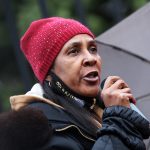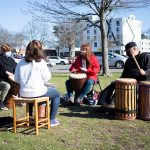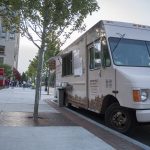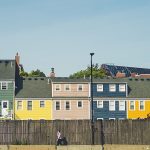Boston public schools, which have been operating mostly virtual since mid-March, are unlikely to fully reopen until after winter break, Mayor Marty Walsh said at a press conference Tuesday.
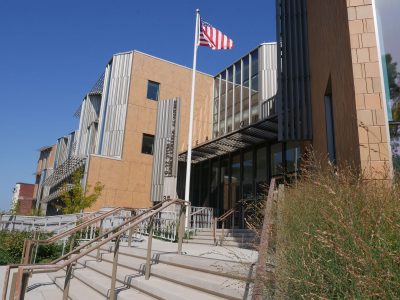
Walsh’s statement came two weeks after Anthony Fauci said many schools can operate in person safely with social distancing and hybrid learning in a CNN interview.
The mayor said he hopes to present a reopening plan within the next two weeks.
“The loss of education by not being in person, we don’t know what the impacts will be right now, we probably won’t know for a year or so,” Walsh said. “I think they’re going to be pretty detrimental in some ways.”
Expected progress for BPS students was partially halted by the initial shift to online learning last school year, said Chris Cotrone, director of marketing for Boston Partners in Education, an education advocacy group that matches BPS students struggling in school with academic mentors.
BPS aims to gradually phase in students identified as “high priority” — including those in special education, English-language learners and students experiencing homelessness.
Cotrone added that the shift has brought challenges to students’ social and emotional learning, not just their academics.
“That’s where students are connecting, making friendships, learning social skills,” Cotrone said. “In person, students can raise their hand if they are having a problem, just that little piece of feedback and emotional connection that comes with that … there’s really not room for that in shorter, online classrooms.”
Many students do not turn on their cameras in online classrooms, Cotrone said, further reducing the possibility for face-to-face interaction..
But Cotrone added that if students return to in-person classrooms before a vaccine is implemented, typical socialization would still be hindered by public health guidelines and the need to physically distance.
“There’s always going to be this strange stigma of not being able to get close to somebody, not being able to do things that normally a student or child would do,” he said. “Jumping around the hallway, or playing sports or being part of clubs and activities. I mean, how do you do any of those things?”
Global evidence that opening schools triggers increased COVID-19 outbreaks is sparse, said Paul Beninger, associate professor of public health and community medicine at Tufts University School of Medicine.
Despite this, Beninger said trying to pin down a reopening date at this time is unrealistic.
“We have not really well understood the epidemiology of COVID in children,” Beninger said. “We’re getting better at it, but … there’s still a great deal of uncertainty about what those epidemiologic dynamics are in children relative to what we know about adults.”
Early COVID-19 infection analysis demonstrated that children were significantly less likely to be hospitalized than adults, but one in three hospitalized was later admitted to an intensive care unit, according to the U.S. Centers for Disease Control and Prevention.
A vaccine developed by Pfizer and BioNTech was authorized for use in the United Kingdom on Wednesday.
That vaccine has also passed the safety guidelines for emergency authorization by the Food and Drug Administration. The companies intend to submit it for approval in the next few days.
Once authorized for the United States, it will first be given to health care personnel, essential workers, those with underlying conditions and the elderly, according to the CDC.
Beninger said he was “deeply disappointed” children are not being considered in initial development trials and distribution plans.
“I just think it’s fundamentally wrong that children were not part of the early plan,” he said. “Children should be part of the vaccine program, and they’re probably not going to get vaccinated for another six months.”
Given its delay in reaching students, Beninger said the vaccine is unlikely to play a major role in the decision to reopen schools.
BPS reopened four schools focused on students with complex disabilities Nov. 16. They have yet to announce a timeline for a district-wide return.
In the meantime, Cotrone said, teachers can meet the needs of their class without sacrificing their own safety by taking advantage of Boston nonprofits that are aimed at supporting students.
“Beyond just the learning,” he said, “students right now just need someone else to talk to, to ask questions.”

